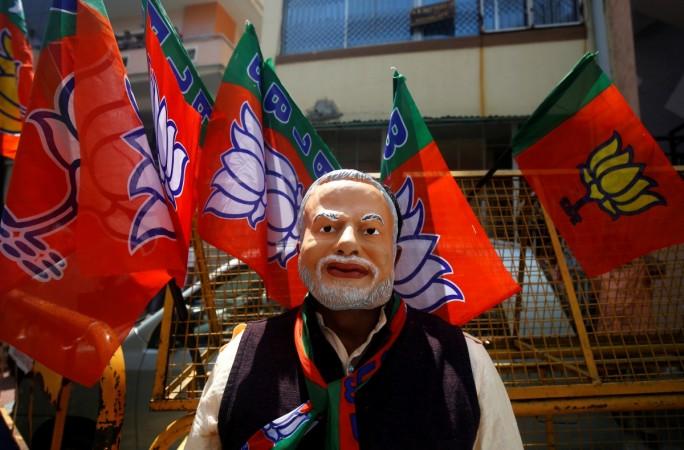
The debacle of the Samajwadi Party (SP) and Bahujan Samaj Party (BSP) — the two parties that have dominated Uttar Pradesh's politics for decades — in the recent Assembly elections and the return of a national party – the BJP – to the throne of Lucknow after 15 years has made the question pertinent: Are India's regional parties staring at a gloomy future? That leads to the next question: Is this the end of the coalition era, which many among us abhor because of the instability it brings along?
Besides UP, the BJP's victory after coming from behind in Goa and Manipur also says a lot about the resurgence of a national party eclipsing the regional outfits. In fact, proving another facet of this argument, the regional parties of those two small states decided to play a second fiddle to the BJP and not engage in squabble for short-term gain.
Goa and Manipur showed BJP is no longer an untouchable party
Many regional parties now seem ready to toe the BJP's line and don't see it as a pariah any more (in fact, the Congress looked more of an outsider). The eagerness on their part to play a second fiddle to the BJP in a Modi-fied India speaks volumes about the changing political reality of India.
The regional parties rose to prominence in India on the ruins of the Congress system, which had begun to crumble in the late 1980s. Since there was no readymade replacement for the falling behemoth, the regional parties chipped in to fill the vacuum and played opportunistic roles in deciding the country's political fate. However, their geographical limitations always made them more of a liability than an asset for the nation's stability and progress.
The emergence of a majority government under Narendra Modi in 2014 brought about a revolution. It not only took the Union government beyond the designs of the regional satraps but also made several regional leaders fall in line to back the BJP, for they could understand that Modi is here to stay for a long time and that there was clearly no other alternative.
Regional parties like Ram Vilas Paswan's LJP leaned towards BJP
From Ram Vilas Paswan's Lok Jansakti Party to the smaller ones in Goa and Manipur, parties have felt convinced that wisdom today lies in aligning with Modi's BJP. The BJP is looking so strong at the moment that the idea of a federal front to take on the party in the 2019 Lok Sabha election is looking increasingly feeble.
Regional parties could still defeat Modi but they are specific cases
However, there are parties that aspire to defeat Modi after taking him head on. The results in Delhi and Bihar in 2015 reiterated the belief that Modi is still short of conquering India's soul. While Arvind Kejriwal's AAP decimated the BJP in Delhi, the Mahagathbandhan of Lalu Prasad, Nitish Kumar and the Congress defeated it in Bihar. But as time went by, those results proved only to be exceptions.
While the saffron party was decimated in Delhi because of its internal feud, which was made worse by the selection of Kiran Bedi as the chief ministerial candidate, it was Lalu Prasad's grip on the ground and Nitish Kumar's reliability as an administrator, coupled with BJP's overuse of Modi, that saw the saffron brigade falling flat in those elections. But those apart, the BJP has proved itself to be a major alternative in several states where it was of no relevance even a few years ago.
True, there are states where regional parties still dominate but those are one-person shows
The BJP will require more time to penetrate states like West Bengal, Odisha, Tamil Nadu and Telangana, where the ruling local parties are still powerful enough. But again, those parties are one-person shows (AIADMK in Tamil Nadu is already facing uncertainty after Jayalalithaa's death) and will have a major problem over succession after a point of time. In Maharashtra, the Shiv Sena has been dealing aggressively with the BJP, for it is afraid of losing its home advantage to the latter.
Also, poor track record in governance and charges of corruption have started hurting many of these regional parties. One would not be surprised if the ever-strengthening BJP system gobbles up those states in the days to come.
Indian politics today is heading towards a system where the main party calls the shots. The era of coalition politics, which dominated Indian politics between 1989 and 2014, seems to be a thing of the past.

















